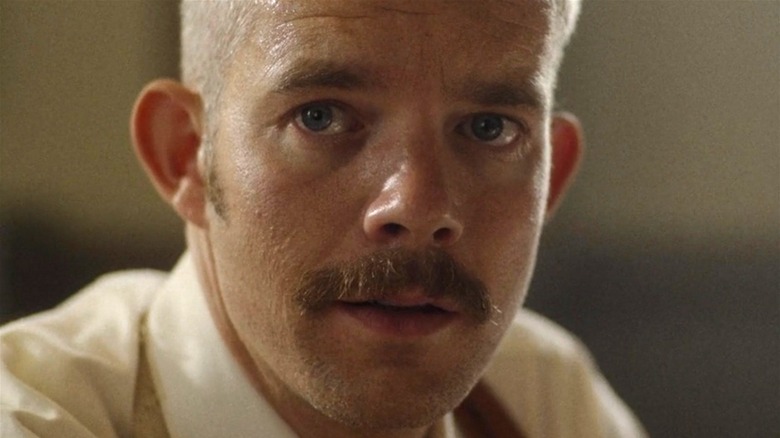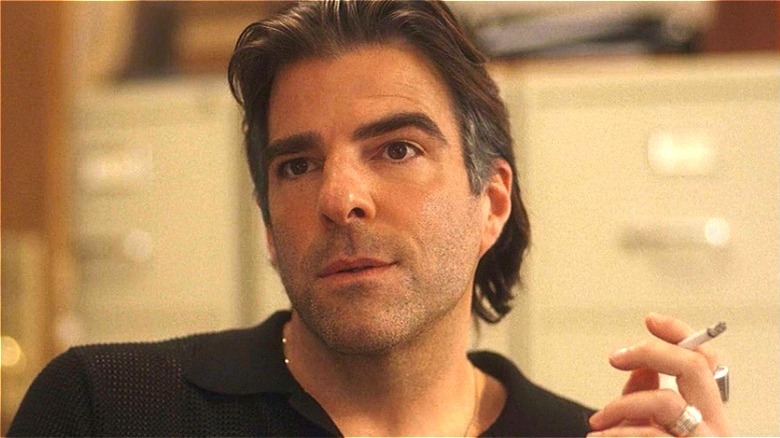Is American Horror Story: NYC Based On A True Story?
Horror often has its roots buried deep in reality, which is what makes it so terrifying. For example, "Psycho," "Texas Chainsaw Massacre," and "Silence of the Lambs" all took inspiration from the real-life killer and Wisconsin native Ed Gein (via CrimeReads). True crime has been a burgeoning industry in entertainment, exhaustively covering killers such as Ted Bundy and Richard Ramirez. And no one seems to be more fascinated by this subject matter than writer and director Ryan Murphy.
Most notable for his long-running anthology series "American Horror Story," Murphy has covered almost every known serial killer in popular culture. So thoroughly explored is this subject matter that he released two limited series based on true events this year alone. "The Watcher" investigates the disturbing story of a Westfield, New Jersey family plagued by threatening letters after moving into a new home. And it has been hard to ignore the highly publicized backlash of "Dahmer — Monster: The Jeffrey Dahmer Story." Now Murphy is at it again with the new season of "American Horror Story: NYC." This time taking place in the '80s in New York City, many may be wondering if Murphy is once again turning fact into gratuitous and provocative fiction.
AHS: NYC only takes inspiration from cultural events
True to the brand of "American Horror Story," Season 11 of the series takes inspiration from many places. In many ways, New York was a horror show all its own in 1981. As CNN noted, AIDS was in its infancy but would go on to be an epidemic of massive proportions. This is the backdrop for "AHS: NYC," while a killer targets gay men in the city. As similar as this may seem to Jeffrey Dahmer's reign of terror in Milwaukee, Ryan Murphy is not ripping anything from the headlines this time. The main drag of the series seems to surround the mysterious Big Daddy, prime suspect number one in these killings due to their leather getup. This season only pays homage to the culture of the time but spins off into a world all its own.
This is the safest bet for the veteran creator of the series. The brand of "American Horror Story" can often be a double-edged sword. Though the heightened drama of the series has given us classics such as "AHS: Murder House," it can also rub viewers the wrong way. Such was the case when fans had problems with Richard Ramirez's depiction in "AHS: 1984" because of the real trauma he inflicted on his victims. When Murphy makes the story his own, he can develop a horrific tale without putting killers on a pedestal.

